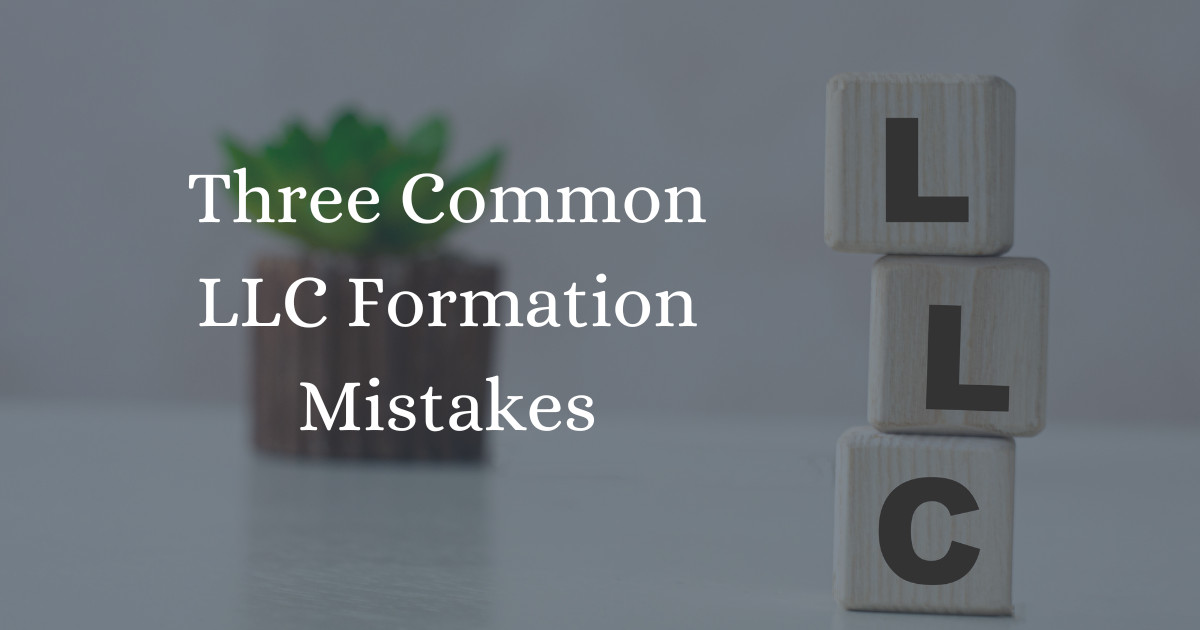
When starting a new business, many entrepreneurs try to save money by using online services to set up their own LLC. This seems like an easy process, but most business owners don't understand that forming an LLC is simply deciding how to protect their business from a LEGAL standpoint. How the entity is treated for TAX purposes is a separate conversation and getting this wrong could be costly.
Mistake #1: Forgetting about Foreign LLC Registration Rules
Have you read those tempting advertisements for Delaware or Nevada limited liability companies? The advertisements sound pretty good, but most small businesses shouldn't use out-of-state LLCs or, for that matter, out-of-state corporations.
If you're doing in business in, say, New York, you're not going to be able to avoid state taxes by forming your LLC in, say, Nevada. The tax and corporation laws in your state will require you to register your out-of-state, or foreign, LLC in the states where your business operates. Those same laws will require you to pay state income taxes in the states where you earn your income.
Large businesses do prefer Delaware for a variety of reasons, mostly having to with how sophisticated the Delaware chancellery courts are. But this applies to really big businesses that will litigate in Delaware, not small businesses. And Nevada does offer corporations a no-income-tax haven, but you need to set up a real business presence there, with an office, employees, property, the whole enchilada.
Mistake #2: Electing to be Treated as a C-Corporation
An LLC is a chameleon for tax purposes. An LLC with a single owner can be treated as a sole proprietorship, a C-corporation or an S-corporation (assuming eligibility requirements are met). An LLC with multiple owners can be treated as a partnership, a C-corporation or an S-corporation (again, assuming eligibility requirements are met).
But just because you can do something doesn't mean you should. And unless you've got expert tax advice from an attorney or certified public accountant, you shouldn't make the election to be treated as a C-corporation. A C-corporation is taxed on its profits. When those profits are distributed to shareholders, the profits are taxed again to the shareholders as dividends. By electing to be taxed as a C-corporation the LLC owners create an extra level of taxation. This isn't the answer anyone is looking for.
Mistake #3: Electing to be Treated as an S-Corporation Too Early
This is a HUGE mistake that many small business owners do, often because of ads they've seen or bad advice they've received from professionals.
LLCs can elect to be treated as S-corporations, as noted in the preceding paragraphs. Once a business generates profits well in excess of the amounts paid to owners for salaries, an S-corporation election saves the owners big money; sometimes tens of thousands of dollars per owner per year.
But you don't want to elect S-corporation status too early; especially if the LLC is owned and operated by a single owner.
By electing S-corporation status, the LLC needs to file an expensive corporate return, needs to begin doing payroll, even if the only employee is the owner, and may need to pay additional payroll taxes like state and federal unemployment taxes.
The best path is to wait until your business is profitable to elect S-corporation status for your LLC. Because you have to pay yourself a reasonable wage, for many business owners it doesn't make sense to make this election until profits are at or above $75,000 or so. (Depending on your business and profession and what "reasonable" means in your industry.) This is a decision that is very difficult (and sometimes impossible) to undo for your business. Talk to a professional before pulling this trigger to ensure your tax savings outweigh the additional bookkeeping burdens and accounting fees. Your patience will pay off in two ways: simpler accounting and less expensive tax returns.

Terri Johnson, CPA










0 Comments